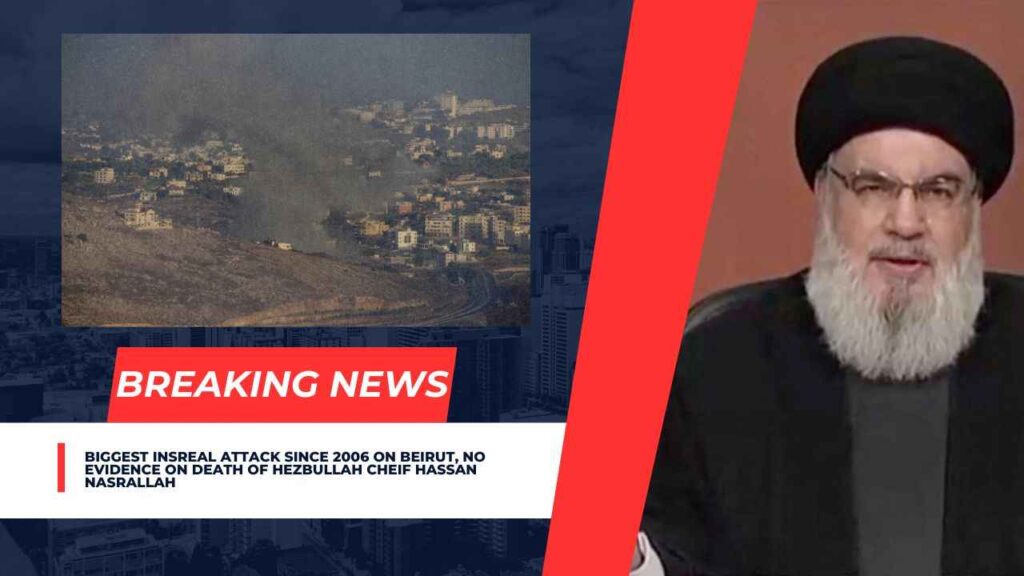Israel launched a significant airstrike against Hezbulla’s key strongholds in southern Beirut, Lebanon, on 27th September.
The strike began last night in the heart of the capital city, thick smoke shown bowling in the sky, building fear and tears towards all civilians in the city.
This operation marked Insreal’s most intense airstrike till 2006, resulting in massive explosions that levelled secular buildings and caused destruction all over the city, Beirut fitting its military, focusing on Gaza to Lebanon earlier this week.
The primary target of these attacks is to disrupt the strongholds of Hezbollah throughout Lebanon. Although the Israeli television network reported that the primary target was to kill Hezbulla’s leader, Hassan Nasrallah, according to the news agency AFP, Nasrallah is fine and has been hiding for years to evade assassination attempts; he holds all the power in Lebanon, particularly among his Shiite supporters.
The Israeli Defense Forces (IDF) confirmed their involvement in the strikes to dismantle Hezbullah’s military infrastructure, claimed the death of Muhamad Ali Ismail, the commander of the Hisbullah mission unit in southern Lebanon, his deputy, and other senior officials of the Iran-backed militia.
Ahmad Ahmad, a resident, described the attack as feeling “like an earthquake,” claiming it was the biggest attack he had seen as quoted by AFP.
The strike continued with a second bombing targeting the weapon depots of Hezbullah in the buildings in southern Beirut. The reporters claimed a total of six buildings levelled and 91 people were wounded, 6 deaths.
The operations follow an escalation of hostilities between Israel and Hezbollah, including rocket fire from Lebanon into northern Israel since the onset of renewed conflict after Hamas’ attack on October 7. The Iranian embassy described the airstrikes as a “dangerous escalation” that could alter the dynamics of the ongoing conflict.
Israeli Prime Minister Benjamin Netanyahu told world leaders at the United Nations General Assembly on Friday that Israel will continue their military campaign against Hezbollah until the northern border is fully secured. He concluded that they have enough defence no reprieve will be given to Hezbollah, and there could be ground offences in Lebanon.
Benjamin also issued a warning to Tehran for supporting Hezbollah, indicating that Israel’s reach could extend throughout the Middle East if necessary, starting “If you strike us, we will strike you.”
There is still confusion regarding Hezbulla’s fate, following the attack. While he was the target, it remains unclear whether he was present during the strikes or if he survived, A fear of border conflict arrived with Hezbollah’s response with rocket fire into the Israeli territory following the airstrike.







